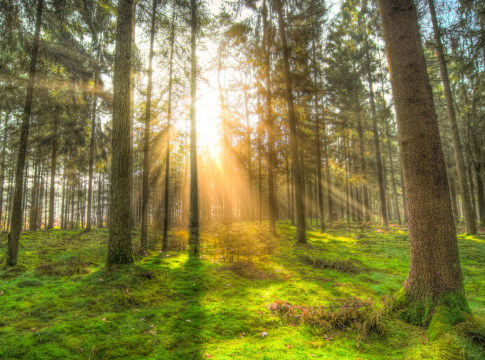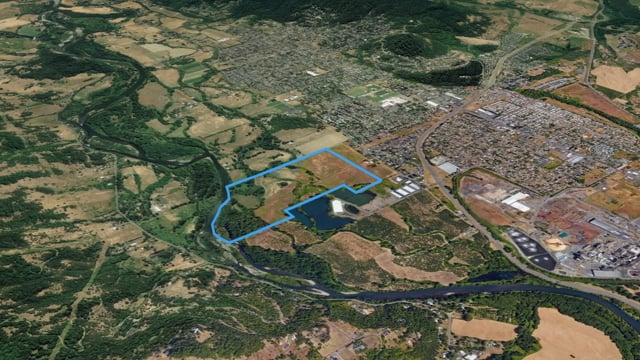Questions?
Call us at 541-685-7607 or email LeadGreen@eweb.org.
As an EWEB customer, you’re already using clean, renewable energy and investing in McKenzie Watershed protection. But together we can do more.
Climate solutions require innovation. The Carbon Forest Lab is an opportunity to invest in local carbon forestry projects aimed at expanding our understanding of natural climate solutions and enhancing the McKenzie Watershed.
The project seeks to answer a few core questions:
- What kinds of plants and trees sequester the most carbon?
- How can we maximize carbon sequestration in the soil to ensure long term capture that is impervious to wildfire?
- What is the best planting method for long-term planting success?
- How do we balance the benefit of more trees with the risk of wildfire?
By helping answer these research questions, your investment of $6.50-$8.50 per month allows climate scientists to focus on the solutions needed to bring about transformational change.
How does it work?
EWEB’s Carbon Forestry Lab program is completely voluntary. The charges for the program are added to your EWEB bill.
You have two investment options:
Option 1: Basic ($6.50/month)
Your investment will support material costs for trees, shrubs, protective materials, seedling transportation and storage.
Option 2: Plus ($8.50/month)
In addition to supporting material costs for trees, shrubs, protective materials, seedling transportation and storage, your investment will provide funding for the annual carbon inventory and research work conducted by UO graduate students.
Carbon Forestry Lab funds may be utilized at the existing High Banks Site, or to expand the program throughout the McKenzie River watershed through conservation easements, land use partnerships or direct investment.
EWEB's formal Rate Schedule for this program is available here.
What is the Carbon Forestry Lab?
The University of Oregon’s Soil Plant Atmosphere Lab and EWEB are partnering on a pilot study funded by a National Science Foundation Convergence Grant. The project is on a 12-acre fallow field in Springfield near the McKenzie River, part of a 140-acre parcel EWEB purchased from Weyerhaeuser Company.
Researchers are studying soil and forest management techniques to store excess carbon and increase the amount of carbon that can be stored in the soil.
In early 2022, the Lab team planted Douglas fir, incense cedar, ponderosa pine, cottonwood, bigleaf maple, ash and white oak tree species, plus shrubs that include osoberry, cascara, Oregon grape, snowberry, ninebark and creek dogwood.
The team will monitor carbon levels as the trees grow in various treatments, such as hardwood-only, conifer-only, mixed tree and shrub, and shrubs only.
The dual benefits of protecting the McKenzie River watershed and potentially sequestering carbon make this a unique opportunity for EWEB and our customers.
Take Action
Investing in the Carbon Forestry Lab through EWEB is simple:
- Decide your investment level.
- Enroll today by contacting Customer Service at 541-685-7000 or online through the EWEB Customer Portal by selecting the Lead Green program application.



